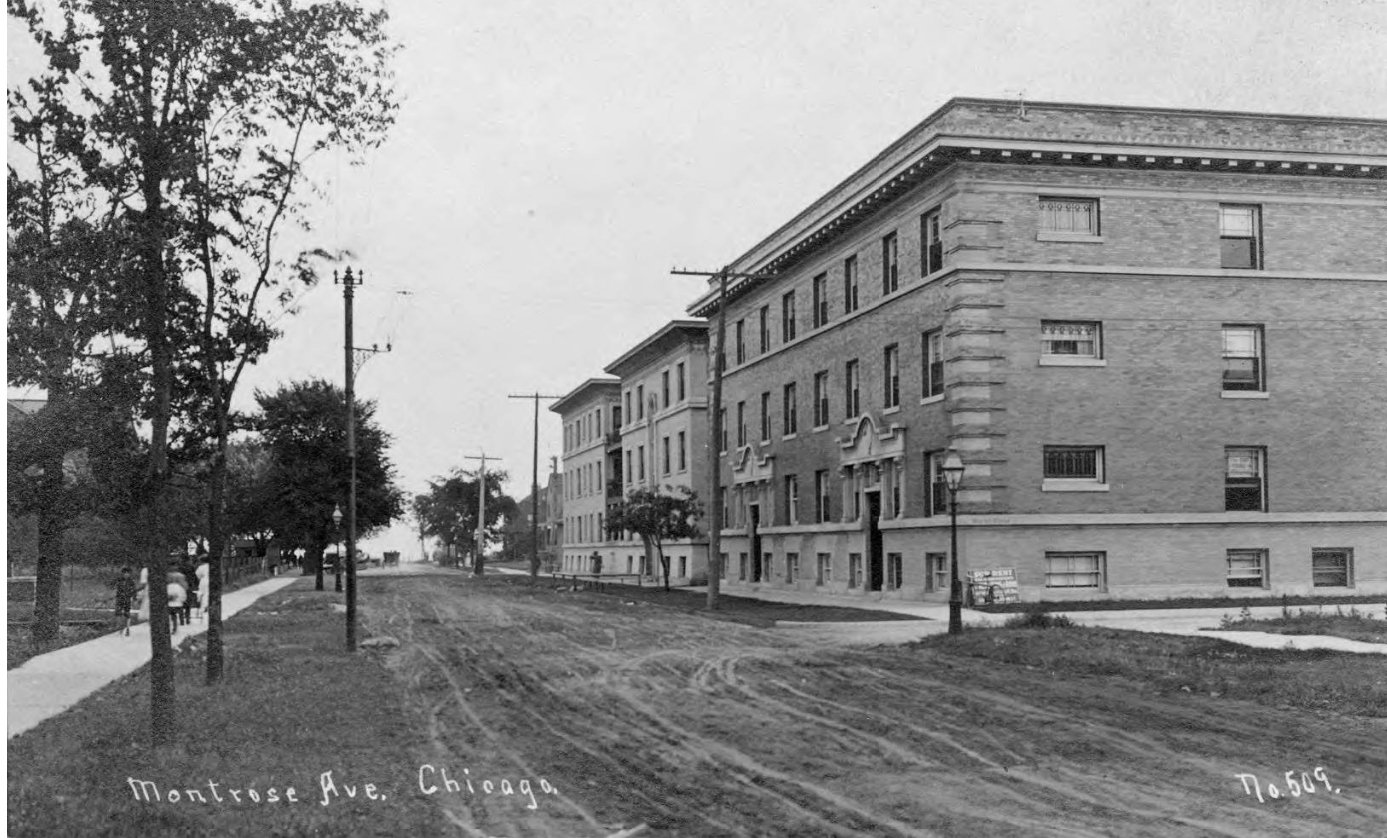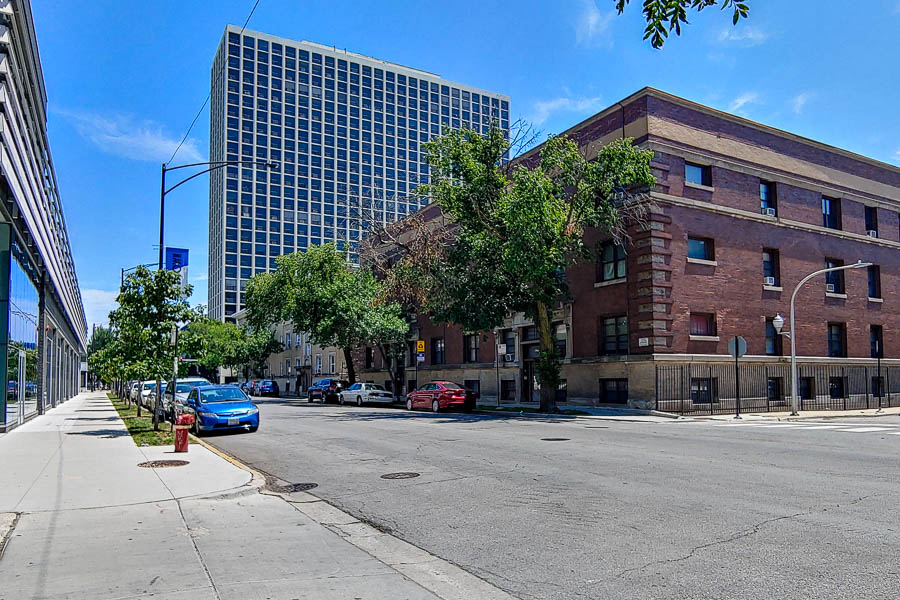A cold front pushed its way through Chicago this afternoon, making it feel much more like autumn than we've experienced so far. And it got pretty chilly in Washington, where Senate Republicans began the first day of hearings into the nomination of Amy Coney Barrett for the Supreme Court:
And much farther from home, Mars will be in opposition tomorrow night, coincidentally during the new moon, meaning we'll get a really good look at it.
As Covid-19 cases rose in large cities, people started moving to the suburbs in larger numbers. Crain's reports that the combination of fear, downtown office closures, and low interest rates caused home sales nearly to double in 14 Chicago-area suburbs. Barrington, a wealthy village of horse barns and huge houses, saw the largest number of home sales last month, with Lake Forest (a similar place) close behind.
Amanda Mull, writing in The Atlantic, sees this as a big gamble:
When we talk about people leaving America’s biggest cities right now, people largely means the rich. In The New York Times’ analysis of cellphone location data, 420,000 people fled New York City for some period of time from March 1 to May 1. Those who left were heavily concentrated in the city’s wealthiest zip codes, especially those in Manhattan. A similar phenomenon was found in the city’s trash-collection patterns, in which the amount of garbage dropped most sharply where rich people had vanished.
[T]he work-from-home “revolution” is already off to an uneven start, with many people returning to offices at the behest of their employers in states that have more fully reopened. There’s reason to believe that will continue.
People whose employers are amenable to fully remote work might still see consequences if they stay out of the office. Some employers could use remote work as an opportunity to tighten budgets beyond just their office leases, especially if the economy stays in a recession for a while. Facebook, among the first big companies to make working from home a permanent option, has already made clear that it will cut workers’ pay if they relocate from the Bay Area to less expensive places—a cost-cutting tactic common among employers whose workers retain their jobs when they move to less expensive areas.
There’s not much evidence that the pandemic has changed the tastes of otherwise enthusiastic city dwellers. And even if moving seems like an effective strategy to stay safe, it’s not exactly clear that it will look that way in hindsight. No one really knows how the pandemic will progress over the next year, in big cities or elsewhere. New York City’s outbreak now seems to be under far better control than those in many popular migratory destinations in the Sun Belt, which could change the calculus for panic-movers.
Those of us who love cities still love them. Of course I understand the allure of suburbs; getting out of Chicago for a few hours was one of the motivations for the Brews & Choos project. But I just don't like the costs of living in the suburbs, like having to drive everywhere, and "everywhere" means a chain restaurant or box store. The only suburbs I could imagine wanting to live in are Evanston and Oak Park, not coincidentally two of the densest in the area and both with multiple rail lines to downtown Chicago. There are millions of people who agree.
Here we go:
Finally, for only $875,000, you can own this contemporary, 2-story house...on top of an 8-story building.
I've had an unusually busy (and productive!) day, so naturally, the evening reading has piled up:
Finally, National Geographic has a slideshow of the world's best ghost towns.
With 58 days until the election, the noise keeps increasing. Here's some of it:
Finally, The Smithsonian describes how Greg Priore managed to steal priceless documents from the Carnegie Library of Pittsburgh, because he was in charge of security for those items.
Conductors on the heavy-rail line I take downtown twice a week haven't asked me for my ticket all summer. Apparently they're pissed at Metra, the agency that runs our commuter trains:
Metra, which is struggling financially during the pandemic, said Union Pacific’s refusal to send conductors into the train cars is costing the commuter rail system $1 million a month in lost ticket revenue.
Union Pacific, which operates the UP North, Northwest and West lines, is not allowing conductors back into the aisles to punch tickets, citing coronavirus safety concerns. That has created a “no fare” policy, Metra said, essentially giving passengers on those lines a free ride for the foreseeable future.
“Because UP conductors are neither selling tickets nor validating fares, most riders on their trains have been riding for free, which is hurting the system financially and is not fair to riders on the other lines who are being asked to show their fares,” Metra spokesman Michael Gillis said Tuesday.
Metra and Union Pacific have been in negotiations since last fall to either extend their service agreement or create a new one. One option on the table would be for Metra to take over operations of the commuter trains using its own employees, Gillis said.
For what it's worth, I've "burned" an electronic ticket most times I've ridden on the train. It seems like the right thing to do. But it also seems like the conductors need to do their jobs.
Also, I want to know why, after five years, we still don't have a new inbound station at my stop. They've built all the bridges, and only a couple weeks ago they started laying new track, but at an incredibly slow pace. One morning I see a few dozen ties (sleepers); later in the week, a few more. Then the following week, they plop a single rail down on a few of them. It's maddening, especially as we're going to have yet another winter without shelter on the inbound side.
I'm waiting for a build to finish so I can sign off work for the day, so I've queued up a few things to read later:
Looks like the build is done, and all the tests passed. (I love green pipelines.)
Just a few things have cropped up in the news since yesterday:
- President Trump has threatened to send federal agents to "assist" with Chicago's efforts to curb gun violence, which no one except the Trump-supporting head of our police union wants. Michelle Goldberg calls the presence of federal agents in Portland a harbinger of fascism, while the ACLU calls it "a constitutional crisis" and has filed suit to reverse the policy.
- Also in Portland, an unidentified woman wearing only a hat and face mask nonchalantly walked in front of a row of federal police and danced for them. Said the LA Times, "She stood calmly, a surreal image of human vulnerability in the face of an overpowering force that has been criticized nationally by civil rights advocates." (Nudity is constitutionally-protected speech in Oregon.)
- The BBC also digs in and reports that the 1807 Insurrection Act prohibits this kind of federal intervention. Notably, the last time a president invoked the law against the express wishes of the state was in 1957, when Eisenhower sent troops to Arkansas to protect black children from white mobs.
- St Louis Circuit Attorney Kimberly Gardner's office filed felony charges against Mark and Patricia McCloskey for unlawful use of a weapon, but the Republican governor of Missouri has already promised to pardon the couple.
- The FBI arrested Republican Ohio House Speaker Larry Householder and three others in connection with a $60 m bribery case.
- The Boeing 747 has become the latest casualty of Covid-19, with only one airline continuing to fly the jet in passenger service.
- The Chicago Transit Authority has started round-the-clock construction on the $2.1 bn Red-Purple Modernization Project, which my alderman acknowledged would cause "massive disruption."
Finally, the Covid-19 mitigation rollback announced yesterday has led to Guthrie's Tavern closing permanently. Guthrie's, which opened in 1986 and featured board games and good beer, will pour its last pint on Thursday.
I found this photo of the 800 West block of Montrose in April 1891 in a Chicago Public Library collection:

Here's the same place yesterday:

A few things have changed. In 1891, Montrose was paved for the half-block between Clarnedon and the Lake, and the apartment developer had built a proper curb from Dayton to Clarendon on the south side. I expect that the city paved the rest of Montrose shortly after this photo.
The park to the left became a hospital in 1957, which closed in 2009 and was demolished in 2016. The high-rise center frame marks the shoreline in the top photo. Lake Michigan is now over a kilometer farther west after the construction of Montrose Harbor in the 1930s.
A couple on the north side of Chicago planted hedges around a patch of public park land and fought the city's attempts to get the land back for 15 years. Then a local blog got ahold of the story, and the hedges came right out:
About 8:30 a.m., a landscaping crew was at the home in the 3000 block of North Lake Shore Drive West to remove the hedgerow on public land. The politically connected homeowner, businessman Michael Tadin Jr., confirmed he ordered the bushes removed.
As neighbors watched the hedgerow being torn out, one person passing by said, “I can’t tell you how happy this makes me.”
Another walked up, threw an egg at the house and left a bag of dog poop on the lawn.
Block Club revealed Tuesday that Tadin Jr. and his wife, Natalie Tadin, planted hedges around the 3,000 square feet of Chicago Park District land in front of their home, according to an inspector general report issued last week.
The entire block from Wellington to Barry that faces Lake Shore Drive West was previously a convent for a religious order. About 15 years ago, the mansion and chapel on Barry were converted to residential use when the property was sold and the land around it was rezoned.
I have a particular interest in this story because I used to live directly above the property in question. I'll try to find a photo of it from before the convent closed.